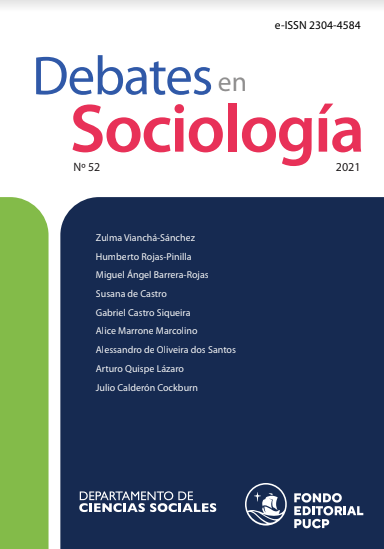The anticolonial character of the fight against racism in Brazil
DOI:
https://doi.org/10.18800/debatesensociologia.202101.002Palabras clave:
Whiteness, Coloniality of power, Colonial woundResumen
The text intends to analyze the impact of Brazilian colonial slavery on social relations today. The purpose of the text is to reflect on the reasons why in Brazil, contrary to what happened, for example in Germany after the Nazi regime, a feeling of shame that would led to guilt and reparation was not fostered in face of the genocide of the indigenous and black people. My hypothesis is that the naturalization and normalization of these facts contribute to the permanence of the coloniality of power, that is, to an unequal distribution of power based on a hierarchy between the races, and their effects, structural, institutional and daily racism. The Brazilian has ‘whiteness’ as a goal and despises its non-European origins. This colonization of the imaginary leads to our intellectual and political subordination. As long as the population is not able to face the trauma of slavery, and understand that it needs to demand reparation from political authorities and economic elites, we will continue to follow a colonial ethos, reproducing Eurocentric racial social standards.






2.png)

